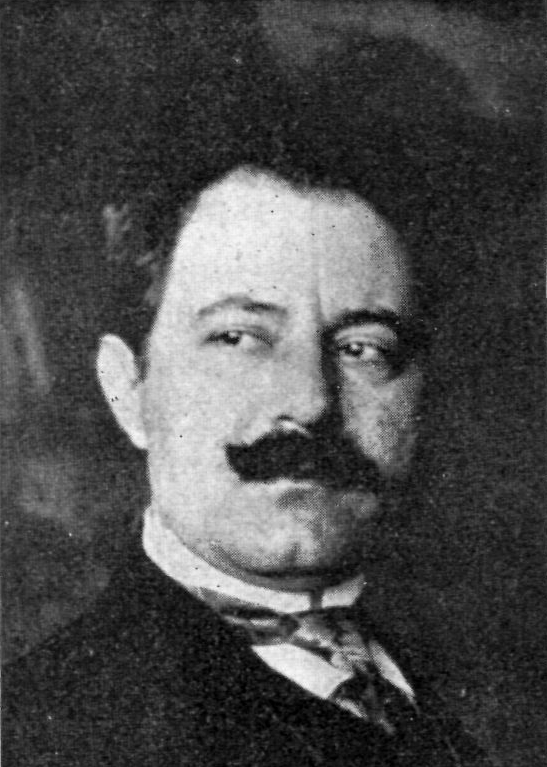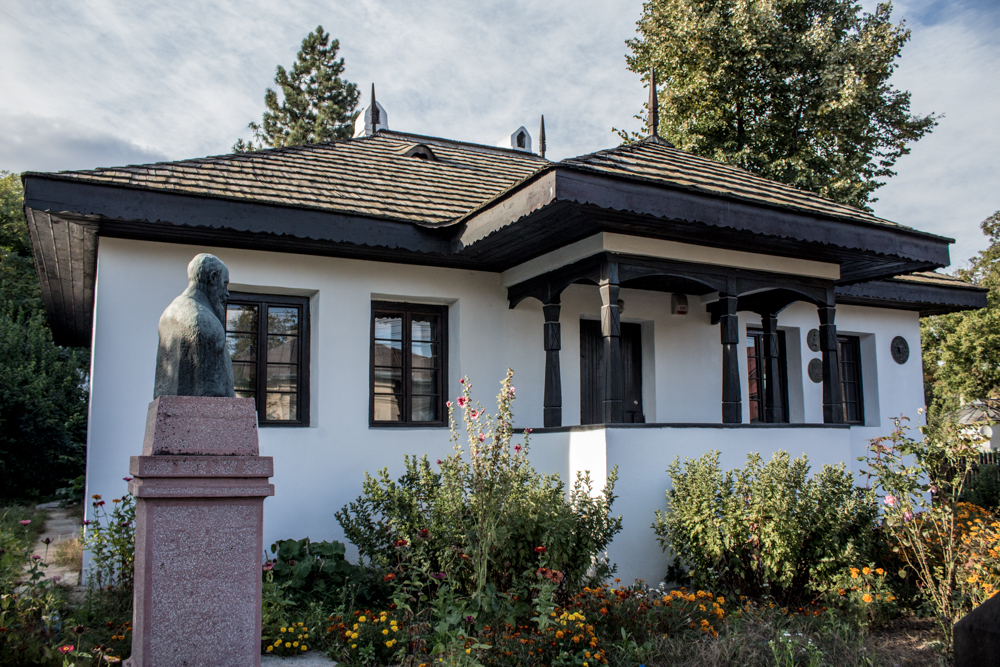|
Romanian Writers' Society
The Romanian Writers' Society ( ro, Societatea Scriitorilor Români) was a professional association based in Bucharest, Romania, that aided the country's writers and promoted their interests. Founded in 1909, it operated for forty years before the early communist regime transformed it into the Writers' Union of Romania. Background and founding Toward the end of the 19th century, an increasing number of Romanian writers began to feel the need for a professional association that would defend their interests before editors and bookstores and facilitate mutual aid. Although the circle surrounding ''Literatură și artă'' magazine shared these objectives, the idea of a freestanding association developed later and under some pressure from foreign professional organizations concerned about intellectual property rights. Thus, the circle became the Romanian Society for Literature and Art, recognized by law in May 1904. The society included artists of all kinds, with widely diverging interest ... [...More Info...] [...Related Items...] OR: [Wikipedia] [Google] [Baidu] |
Bucharest
Bucharest ( , ; ro, București ) is the capital and largest city of Romania, as well as its cultural, industrial, and financial centre. It is located in the southeast of the country, on the banks of the Dâmbovița River, less than north of the Danube River and the Bulgarian border. Bucharest was first mentioned in documents in 1459. The city became the capital of Romania in 1862 and is the centre of Romanian media, culture, and art. Its architecture is a mix of historical (mostly Eclectic, but also Neoclassical and Art Nouveau), interbellum ( Bauhaus, Art Deco and Romanian Revival architecture), socialist era, and modern. In the period between the two World Wars, the city's elegant architecture and the sophistication of its elite earned Bucharest the nickname of 'Paris of the East' ( ro, Parisul Estului) or 'Little Paris' ( ro, Micul Paris). Although buildings and districts in the historic city centre were heavily damaged or destroyed by war, earthquakes, and even Nic ... [...More Info...] [...Related Items...] OR: [Wikipedia] [Google] [Baidu] |
George Murnu
George Murnu (; rup, Ioryi Murnu; 1 January 1868, Veria, Salonica Vilayet, Ottoman Empire, now in Greece – 17 November 1957, Bucharest) was a Romanian university professor, archaeologist, historian, translator, and poet of Aromanian origin. After attending the courses of thRomanian primary and secondary schoolsin Macedonia at Bitola, he attended the University of Bucharest. In 1893, at age 25, Murnu was appointed professor at the University of Iași and shortly afterwards was awarded a scholarship by the Romanian State in order to complete his postgraduate studies in Munich, and, after several years he returned to Romania after completing a doctorate in philology. A fruitful scholarly activity followed, culminating in Murnu becoming a chairman professor of archaeology at the University of Bucharest. In 1909, he was appointed head of the National Archaeological Museum in Bucharest by the Ministry of Public Instruction and Religious Confessions. He has translated an accomp ... [...More Info...] [...Related Items...] OR: [Wikipedia] [Google] [Baidu] |
Aurel Alexandrescu-Dorna '' series
{{disambiguation, geo ...
Aurel may refer to: Places * Aurel, Drôme, France * Aurel, Vaucluse, France Other uses * Aurel (given name) * Aurel Awards, a Slovak music award * AuRel, a dragon in E. E. Knight's ''Age of Fire Age of Fire is a series of fantasy/adventure novels written by E. E. Knight, who is also known for writing the '' Vampire Earth'' series of novels. Age of Fire is eventually succeeded by the Dragoneer Academy Series which is a Spin-Off of the A ... [...More Info...] [...Related Items...] OR: [Wikipedia] [Google] [Baidu] |
Dimitrie Teleor
Dimitrie is the Romanian form of a Slavic given name. Notable persons with that name include: ;First name * Dimitrie Alexandresco (1850–1925), Romanian encyclopedist * Dimitrie Anghel (1872–1914), Romanian poet * Dimitri Atanasescu (1836–1907), Aromanian teacher commonly referred to as Dimitrie Atanasescu * Dimitrie Bogos (1889–1946), Romanian politician * Dimitrie Bolintineanu (1819–1872), Romanian poet, diplomat, politician, and revolutionary * Dimitrie Brândză (1846–1895), Romanian botanist * Dimitrie Brătianu (1818–1892), Romanian politician, Prime Minister of Romania in 1881 * Dimitrie Cantemir (1673–1723), Prince of Moldavia * Dimitrie Călugăreanu (1868-1937), Romanian physician and naturalist * Dimitrie Cărăuş (born 1892), a Bessarabian politician, member of the Moldovan Parliament (1917–1918) * Dimitrie Comșa (1846-1931), Romanian agronomer and activist * Dimitrie Cornea (1816–1884), Romanian politician, and diplomat * Dimitrie Cozacovici (1790 ... [...More Info...] [...Related Items...] OR: [Wikipedia] [Google] [Baidu] |
Corneliu Moldovanu
Corneliu Moldovanu (pen name of Corneliu Vasiliu; 15 August 1883 – 2 September 1952) was a Romanian poet, prose writer and playwright. Born in Bârlad, his parents were Dumitrache Vasiliu, a merchant, and his wife Ruxandra (''née'' Rășcanu). After attending primary school in his native town, he entered the Boarding High School in Iași, graduating in 1902. He then earned a degree from the University of Bucharest's literature and philosophy faculty, in 1904. Starting that year, he was a secretary at the Conservatory of Music and Dramatic Arts, rising to associate professor in 1911. In 1917 at Iași, Romania's temporary World War I capital, he published ''Românul'' newspaper, together with Mihail Sadoveanu, Octavian Goga, Mihail Sorbul, Barbu Ștefănescu Delavrancea and Ion Minulescu. He was a founding member of the Romanian Writers' Society established in 1909, and served as its president from 1921 to 1923 and from 1933 to 1935. He chaired the National Theatre Bucha ... [...More Info...] [...Related Items...] OR: [Wikipedia] [Google] [Baidu] |
Simion Mehedinți
Simion Mehedinți (; October 19, 1868 – December 14, 1962) was a Romanian geographer, the founding father of modern Romanian geography, and a titular member of the Romanian Academy. A figure of importance in the ''Junimea'' literary club, he was for a while editor of its magazine, ''Convorbiri Literare'', and became a supporter of the fascist Iron Guard. He was born in Soveja, Vrancea County. After attending primary school in his native village, he went to study theology, first in Focșani, and then in Bucharest, where he graduated from high school in 1888. He then enrolled at the Faculty of Letters of the University of Bucharest, graduating with a B.A. thesis on "J.J. Rousseau’s ideas on education." He then pursued his studies in Paris, with Paul Vidal de la Blache, and at the University of Berlin, with Ferdinand von Richthofen. In 1895, Mehedinți transferred to Leipzig University, where he completed a Ph.D. degree in early 1899, with thesis "Über die Kartographische I ... [...More Info...] [...Related Items...] OR: [Wikipedia] [Google] [Baidu] |
Nicolae Iorga
Nicolae Iorga (; sometimes Neculai Iorga, Nicolas Jorga, Nicolai Jorga or Nicola Jorga, born Nicu N. Iorga;Iova, p. xxvii. 17 January 1871 – 27 November 1940) was a Romanian historian, politician, literary critic, memoirist, Albanologist, poet and playwright. Co-founder (in 1910) of the Democratic Nationalist Party (PND), he served as a member of Parliament, President of the Deputies' Assembly and Senate, cabinet minister and briefly (1931–32) as Prime Minister. A child prodigy, polymath and polyglot, Iorga produced an unusually large body of scholarly works, establishing his international reputation as a medievalist, Byzantinist, Latinist, Slavist, art historian and philosopher of history. Holding teaching positions at the University of Bucharest, the University of Paris and several other academic institutions, Iorga was founder of the International Congress of Byzantine Studies and the Institute of South-East European Studies (ISSEE). His activity also included the transf ... [...More Info...] [...Related Items...] OR: [Wikipedia] [Google] [Baidu] |
Nicolae N
{{disambig ...
Nicolae may refer to: * Nicolae (name), a Romanian name * ''Nicolae'' (novel), a 1997 novel See also *Nicolai (other) *Nicolao Nicolao is an Italian given name and a surname. It may refer to the following: Given name *Nicolao Civitali (1482 - after 1560), Italian sculptor and architect *Nicolao Colletti (18th century), Italian mathematician *Nicolao Dorati (c. 1513 – 159 ... [...More Info...] [...Related Items...] OR: [Wikipedia] [Google] [Baidu] |
Eugen Lovinescu
Eugen Lovinescu (; 31 October 1881 – 16 July 1943) was a Romanian modernist literary historian, literary critic, academic, and novelist, who in 1919 established the ''Sburătorul'' literary club. He was the father of Monica Lovinescu, and the uncle of , , and Anton Holban. He was elected to the Romanian Academy posthumously, in 1991. Biography Born in Fălticeni, he was a graduate of the Boarding High School in Iași and of the University of Bucharest's Faculty of Classical Languages, and briefly worked as a high school teacher of Latin in Ploiești. He made his literary debut in the literary supplement of ''Adevărul'', and became permanently featured in the periodical ''Epoca'', as the author of pieces on ''Sămănătorul'' writers (such as Mihail Sadoveanu, Ion Agârbiceanu, and Octavian Goga). At the time, Lovinescu was already taking a stand which would lead to the prolonged disputes with Nicolae Iorga and Garabet Ibrăileanu. He obtained his doctorate in Paris for his ... [...More Info...] [...Related Items...] OR: [Wikipedia] [Google] [Baidu] |
Constantin Rădulescu-Motru
Constantin Rădulescu-Motru (; born Constantin Rădulescu, he added the surname ''Motru'' in 1892; February 15, 1868 – March 6, 1957) was a Romanian philosopher, psychologist, sociologist, logician, academic, dramatist, as well as left-nationalist politician. A member of the Romanian Academy after 1923, he was its vice president in 1935–1938, 1941–1944, and its president between 1938 and 1941. Early life Born in Butoiești, Mehedinți County, he was the son of Radu Poppescu, whose natural father was Eufrosin Poteca, and Judita Butoi. His mother died during childbirth, and Radu Poppescu married Ecaterina Cernăianu, who gave birth to Constantin's nine half-siblings. During his childhood, Constantin fell ill with malaria. He also fractured a leg, resulting in a permanent physical impediment. Radu Poppescu, who worked as a secretary for Poteca for part of his life, inherited a certain sum after the death of his employer and father; this was to take the form of a scho ... [...More Info...] [...Related Items...] OR: [Wikipedia] [Google] [Baidu] |
Vasile Savel
Vasile Savel (January 25, 1885–May 17, 1932) was a Romanian prose writer. Born in Fălticeni, his parents were Ecaterina and Ion, a priest and teacher; the family lived on the same road as Mihail Sadoveanu.Eugen Simion (ed.), ''Dicționarul general al literaturii Române'', vol. 6, pp. 51-2. Bucharest: Univers Enciclopedic, 2007. He attended gymnasium in his native town, followed by the Boarding High School in Iași from 1897 to 1904. He subsequently studied literature and law at the University of Bucharest, earning a degree in the latter field. Obliged to earn his own money, he entered journalism in 1904, editing ''Minerva'', ''Seara'' and ''România'' newspapers. His work appeared in ''Flacăra'', ''Mișcarea literară'', ''Dimineața'', ''Presa'', ''Sămănătorul'', ''Viața Românească'', '' Luceafărul'' and ''Cuvântul liber''. He served as secretary general of the Romanian Writers' Society, which he had joined in 1911. His debut brochure, the 1906 ''Opera d-lui I ... [...More Info...] [...Related Items...] OR: [Wikipedia] [Google] [Baidu] |
Ion Scurtu
Ion Scurtu (–July 23, 1922) was an Austro-Hungarian-born Romanian literary critic. A native of Brașov, in the Transylvania region, he attended the local Romanian high school, where his father was a teacher. He then entered Budapest University, but withdrew in order to work as an editor for the Sibiu-based ''Tribuna''. From there, he crossed into the Romanian Old Kingdom and edited Nicolae Fleva's ''Dreptatea''. Returning to Transylvania, he enrolled in Franz Joseph University at Cluj, but was expelled for his nationalist activism. He was obliged to return to the Old Kingdom, and from there made his way to Leipzig University. He earned a doctorate there in 1903; his dissertation dealt with Mihai Eminescu's life and prose work. He continued to devote himself to the study of Eminescu, writing his biography and editing collections of his writings. During the first decade of the 20th century, he was an editor at ''Sămănătorul ''Sămănătorul'' or ''Semănătorul'' (, Roman ... [...More Info...] [...Related Items...] OR: [Wikipedia] [Google] [Baidu] |






